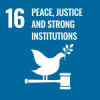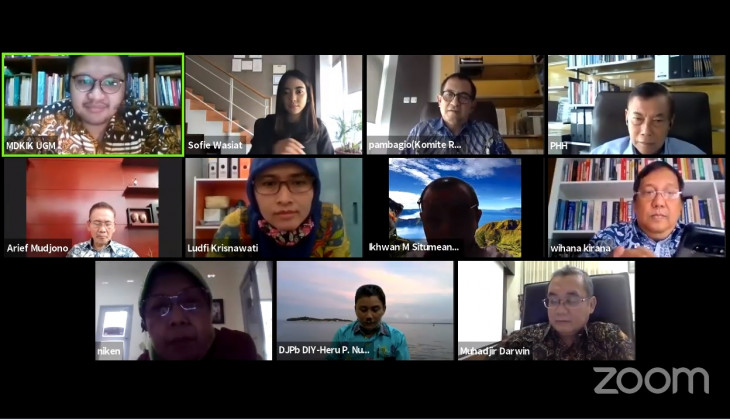The Covid-19 pandemic that hit most countries in the world created a situation of uncertainty, including Indonesia. The government has issued several policies to overcome the effects of the coronavirus.
Public Policy Observer from PH&H Public Policy Interest, Agus Pambagio, said there are still some problems in public policies set by the government in dealing with Covid-19. For example, from a legal aspect, there are still regulations that clash with other level regulations.
“Aside from that, there have also been many circular letters that are not legal products; thus, it is difficult to implement because it is only a kind of internal information,” he said in an online Book Review: Covid-19 Prevention Policy on Thursday (30/7). In the event organized by the Master and Doctoral Study Program of Leadership and Policy Innovation UGM, Agus said data accuracy was still a government problem. He gave an example that there were still many differences in data from the government, the Indonesian Medical Association, and regional governments related to Covid-19. Moreover, there are differences in data classification with WHO regarding Patient under Supervision and People under Supervision and chaotic social aid data.
According to Agus, the current public policy seems to prioritize the sectoral ego of each institution. For example, between the transportation ministry and the task force on homecoming transportation, the transportation ministry with Jakarta’s regional government on commuter line operations, and others.
Besides, the policies taken were also seen as ineffective. Agus mentioned that in pre-employment cards, the appointment of digital platforms and content providers were not transparent. Another example is related to the large scale social restriction policy versus the lockdown, which creates confusion in the community.
“Many things that confuse the public are reviewed in this book to remind policymakers if there are still problems at this time,” Agus said.
Another Public Policy Observer from PH&H Public Policy Interest, Edie Haryoto, said that the government needed to take fast response public policies in the emergency period of the spread of Covid-19. Besides, transparency of data and policies is also required.
“The policies that have occurred show a slow response, and data transparency is also unclear, ineffective, and confusing,” he said.
According to him, the policies issued must also be comprehensive and independent. Apart from this, effective communication and stimulus can build public trust in the government.
Meanwhile, the Head of Masters and Doctoral Study Program of Leadership and Policy Innovation UGM, Prof. Muhadjir Darwin, said that Covid-19 is a new health problem for all countries. Every country in the world makes different innovations according to their respective policies in tackling the coronavirus, including Indonesia.
“The issue of innovation is about being dexterity,” he said.
In policy innovations related to the handling of Covid-19 in the country, Muhadjir said the government was still lacking in disseminating existing policies to suppress the spread of Covid-19.
“What about government policies, health procedures to break the Covid-19 chain so that people act according to recommendations, it seems that the government has to be more extra on defining it,” he said.
Professor of the Faculty of Economics and Business UGM, Prof. Wihana Kirana Jaya, said that Indonesia’s policy has yet to be complete.
“Policies are formal rules of the game where formal and informal enforcement rules must also be intact,” he explained.



